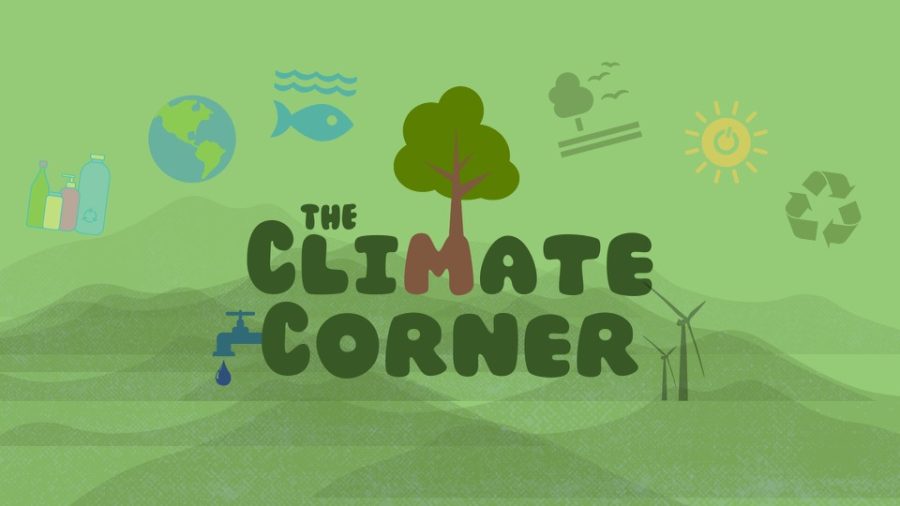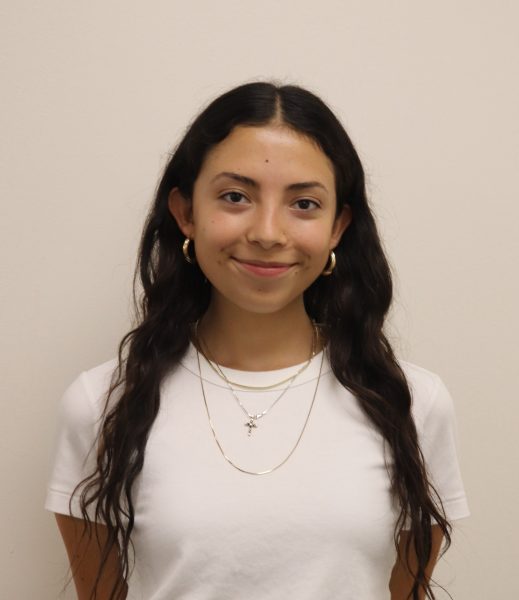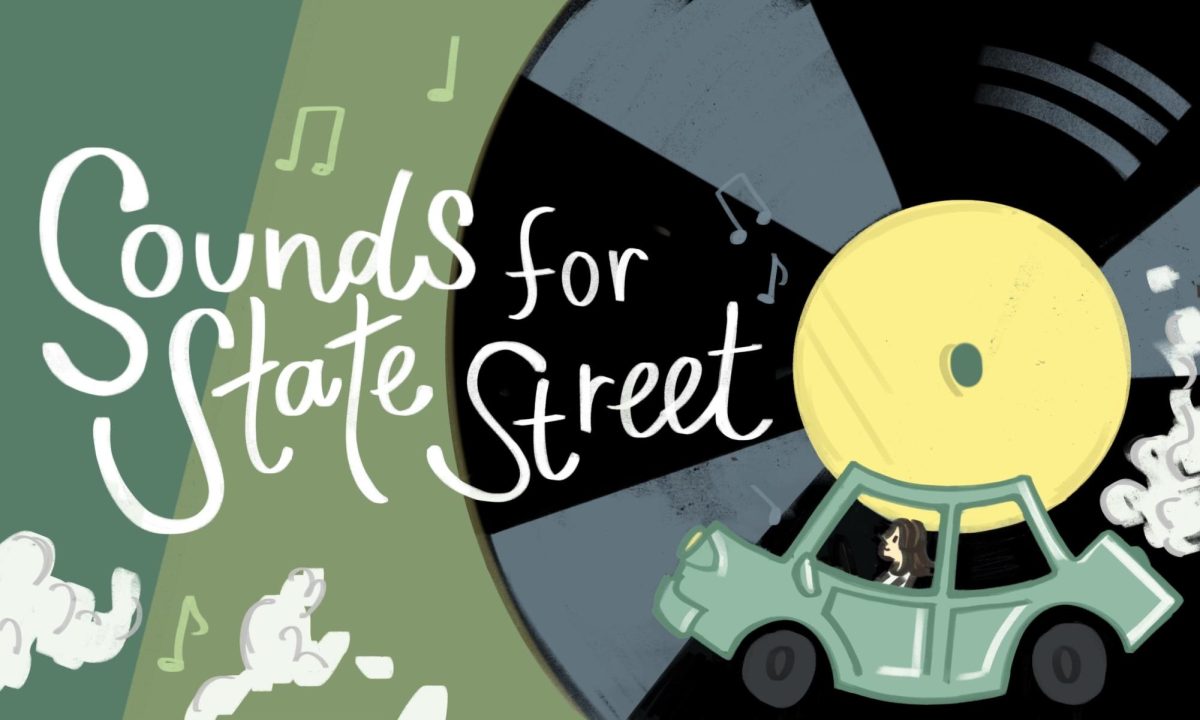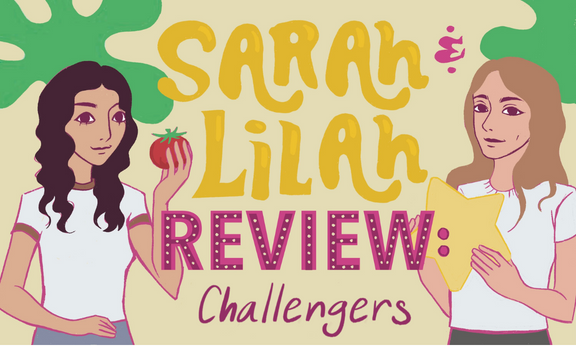Before this year, I would have considered myself aware of the struggling state of our environment; however, I would not say I was doing anything to counteract it, either. Instead of recycling a water bottle, I would throw it in the trash, and instead of choosing a reusable lunch container, I would pack my lunch in plastic bags. However, my habits changed this year when I enrolled in Westridge’s Environmental Science and Sustainability class. In the class, I learned about the negative impact of throwing away a single plastic item and how few facilities there are across the world for recycling and composting.
Since learning about how much I was contributing to the millions of tons of trash humans create annually, I have been doing my best to make more environmentally-friendly decisions, like recycling more and using reusable items over single-use. Alongside myself, I have noticed that other Westridge students do not understand the gravity of their actions either. Despite sitting through numerous presentations and assemblies on the importance of recycling and composting, I believe that many in our community are not adhering to the information provided to us, as there is an enormous amount of evidence shown by our waste production.
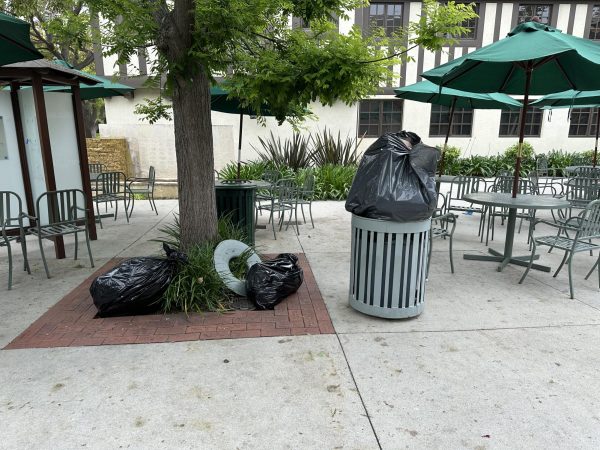
Currently, at Westridge, we have more than 500 students and over a hundred staff members on campus. This means that if each person produced one or more pieces of trash each day, which is already a low estimate, we would have produced 700 items of trash just in one day. This means that in a school year, we create over 126,000 items of trash. According to EarthDay.org, an average public school creates around 522,000 tons of trash each school year. Although Westridge has fewer students and faculty than the average public school, we are still producing a significant amount of waste.
While this fact is extremely concerning to me, I am unsure if other trash producers on our campus are aware of the implications of producing so much waste.
While others at Westridge might be unaware of the climate crisis we are in, ASB Sustainability Head Anna K. ’24 is not, as she has had one major goal in mind for the past two years: eliminating single-use plastic at Westridge. Thanks to the help of the Green Guerrillas, Westridge’s primary sustainability club, which she manages, and Service and Engagement Coordinator Ms. Erica St. John, Anna has implemented several initiatives in hopes of making environmental issues a more prominent topic at Westridge. Despite the assemblies, competitions, and incentives to reduce plastic usage, Anna finds that the Westridge community still does not embrace the environment with the same love she does.
With the help of Ms. St. John and Anna, Director of Dining Services Brandon Worrell was able to tackle one of the largest contributors to plastic waste on campus: lunch. “We really tried to target the plastic utensils in the commons and how they didn’t give a metal utensil option,” said Anna. With most of the student body and faculty needing a utensil or purchasing food with plastic packaging, the Commons creates an enormous amount of waste.
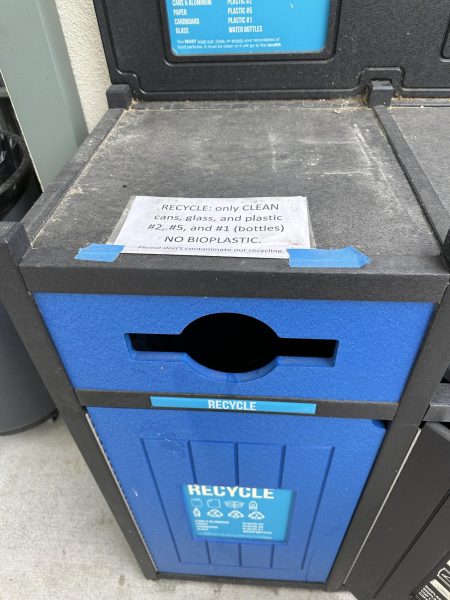
When I conversed with Anna about the plastic in the Commons, I realized that many people, including myself at one point, believed that the utensils provided at Westridge were recyclable, however, Anna reminded me, “that [the Commons’ utensils are] single-use plastic that can’t be recycled, that can never be used again, [and] that will just go straight to the landfill or end up as litter.”
Now that metal utensils are being provided in the Commons, it is one less confusing thing to think about when recycling because there is now a zero-waste option available for students to take advantage of.
Despite this easy choice provided to us, many people are still preferring plastic forks. “I know [plastic items] are not the best for the environment, however, they just feel cleaner because sometimes I’m looking at the metal forks and they look stained,” Willow N. ’25 said.
Unfortunately, Willow N. isn’t the only one who feels this way. Most days, when I look around at lunch time, I notice that the majority of people are using plastic forks, even though there are numerous reusable options available in the Commons. I even notice my own friends using plastic utensils, even after I have mentioned how much cleaner it is for the environment if you choose a reusable option.
Isla R. ’25 uses plastic utensils as well, citing the taste of her food. “I prefer plastic utensils because sometimes the metal makes my food taste strange. I also prefer plastic water bottles, because the metal water bottles also give my water a weird taste, and it can be a hassle to wash [the reusable items], instead of just easily throwing away a plastic fork or something,” she said.
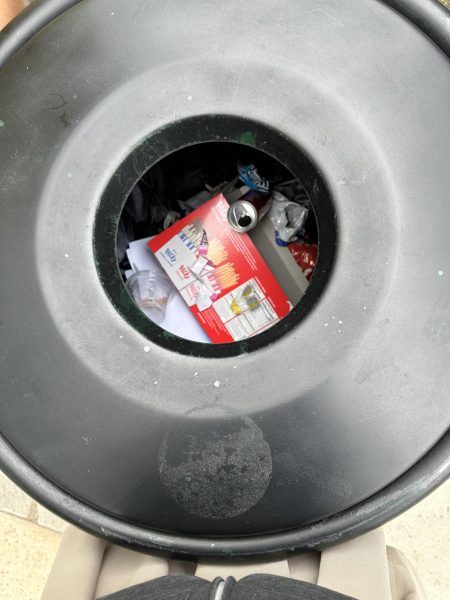
While I used to think and act similarly to Isla and Willow, opting for plastic because of its convenience, thanks to Mr. Worrell, reusable utensils are just as convenient to use as plastic utensils. Even though a metal fork might make your food taste differently, these small preferences sometimes need to be sacrificed as the effects of throwing away single-use plastic create pollution that lasts for centuries.
In addition to switching from plastic to reusable materials, Ms. St. John also helped improve our composting abilities on campus. In 2016, the State of California passed a Senate Bill, SB138, which stated that by 2022, all businesses, schools, and homes in Pasadena must separate all green waste, food scraps, and food soiled paper. Luckily, Ms. St. John was already one step ahead of the Senate and had our trash company, Athens Services, start collecting our composting as well.
While we now have the means to compost, most items thrown into our compost bins are not actually compostable. Either the signs displayed over the compost bins are ignored, or the compost bins themselves are ignored altogether. Unfortunately, since the presence of any non-compostable items in a compost bin renders the entire bin non-compostable, the actions of those who make an effort to correctly compost their food are futile.
To gain insight on why the compost bin is avoided by some students, I talked to my friend, Isla. When I asked Isla why she made the conscious decision not to compost she stated, “Composting is messy and it smells, and frankly recycling can be confusing. Sometimes I want to recycle but it’s dirty and it’s easier to just throw it in the trash.”

Although I agree that composting is not the cleanest or easiest task, the effects of doing so are certainly clean. Ideally, composting should be a task performed in any place that creates waste, however starting by composting at school is a great way to help make our environment healthier. Here at Westridge, you don’t need to actually compost anything—all you have to do is sort your food waste. This way, there isn’t anything gross or dirty about composting, but instead, the actual composting process is much more convenient and easier for people to perform, as our sorted waste goes to Athens Services where they compost our food.
One place we can learn from is our neighbor school, Polytechnic School. Poly has almost completely eliminated trash cans from their campus and mainly rely on sorting stations that have sections to compost, recycle, and dispose of trash with clear instructions on how to do so. Ms. Laura Fleming, Poly’s Manager of Environmental Sustainability, a position Westridge does not currently have, began implementing this program in 2019 after finding the amount of food thrown away after events and lunch times.

“During our summer program, PolySummer, we consolidated all trash cans into sorting stations, because when you don’t have sorting stations, no one recycles or composts, it all just goes in the trash,” said Ms. Fleming. Additionally, she reported that Poly removed 50 trash cans on campus and now have about eight sorting stations in the kindergarten through middle school areas. While the sparsity of trash cans on campus may sound like an inconvenience, Ms. Fleming found that the Poly faculty and student body didn’t actually need very many stations for throwing away trash. Instead, she noticed that less waste was being created when they provided a designated area for composting and recycling.
Currently at Westridge, we have countless trash cans but only five sorting stations for the whole campus. Instead of walking to a sorting station on campus, students and faculty opt for the trash cans because they are most readily accessible. I find this disheartening, as the result of not walking an extra 20 yards is creating an even larger sum of waste than there needs to be at Westridge. Moreover, Ms. Fleming believes that the reason our community is not improving our habits of recycling and composting is because of the easy access to trash cans all around campus. While I understand that we cannot deny people at Westridge access to throwing away trash, I do believe that Westridge is in desperate need of more sorting stations.
Although most Westridge students and faculty may not be making conscious decisions about eliminating waste, the Green Guerillas have been hard at work to help make greener choices. The Green Guerillas have implemented a recycling drive for the month of May by bringing in the organization Ridwell. Ridwell is an organization that recycles plastics such as plastic film, batteries, etc. that typical recycling companies can’t decompose. Thanks to Ridwell, our community is able to learn more about what can and cannot be recycled.

It’s time for the Westridge campus to flip the script on our plastic usage and start taking advantage of more programs on our campus like Ridwell and Athens Services.
So far, the Ridwell drive has seen success at Westridge, however, I still worry that once the drive ends, our community will go back to its bad habits. I fear that with no incentive other than “Saving the Planet,” our campus will never reach its climate goals of being an environmentally friendly campus. No matter how many initiatives the Green Guerrillas or ASB Sustainability heads enact, the actions of our community will determine our future, whether those effects create a hopeful future for our climate, or a fatal one.




























![Dr. Zanita Kelly, Director of Lower and Middle School, pictured above, and the rest of Westridge Administration were instrumental to providing Westridge faculty and staff the support they needed after the Eaton fire. "[Teachers] are part of the community," said Dr. Kelly. "Just like our families and students."](https://westridgespyglass.org/wp-content/uploads/2025/03/dr.-kellyyy-1-e1748143600809.png)






















